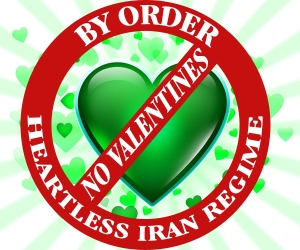The meeting of Arab foreign ministers scheduled to be held in the Saudi city of Jeddah over the Syrian crisis has been postponed indefinitely without explanation by the Arab League. This “emergency meeting” was to discuss the conflict and the replacement of the UN and international mediator Kofi Annan, who resigned last week after the failure of his peace efforts. The Algerian diplomat Lakhdar Brahimi was tipped to succeed him .
However, the foreign ministers of the six Gulf monarchies (Saudi Arabia, Oman, Kuwait, UAE, Qatar, Bahrain) held last night in Jeddah a meeting about the Syrian crisis. Now, this session is expected to take place Tuesday during an Islamic summit in the kingdom following the initiative of King Abdullah of Saudi Arabia who seeks to mobilize the Muslim world in favor of the uprising in Syria.
Syria, a member of the OIC, “will not be represented at this summit,” according to Ekmeleddin Ihsanoglu, Secretary General of the Organization Islamic Cooperation (OIC), adding that a preparatory meeting of Foreign Ministers would be held Monday and should “decide on a suspension of Syria, recommended by representatives of member countries. ” The organization of this summit, which promises very sharp clashes between Iran, unwavering supporter of Syria, and the GCC, including Saudi Arabia, comes as the UN could not take a firm stand on this issue after the differences arising among members of the Security Council.
It would seem that those parties who declined Iran’s invitation to last Thursday’s “Friends of Syria” summit in Tehran have been forced by that event to step up their own efforts.

Leaders of the Gulf Arab States pose for a photo before the opening session of the Gulf Cooperation Council (GCC) summit in Riyadh May 10, 2011. (Ho New/Courtesy Reuters)
Four days after launching its ground offensive to cleanse the rebels from Aleppo, tanks and warplanes of the regime of Bashar al-Assad continue to pound several districts of this metropolis in the North of the country. According to the Syrian Observatory of Human Rights (SOHR), the neighborhoods Shaar, Tariq al-Bab, Hanano, Bustan al-Qasr and Salaheddin are the target of violent firing of artillery by the army.
Shots were also heard in Damascus while the nearby towns of Al-Tal and Harsata were bombed, according to the SOHR.
In Homs, soldiers assisted by militiamen “executed” ten young people in the Shams neighborhood, according to the Syrian National Council, the main opposition coalition. The victims were selected from a crowd of 350 people gathered in one place, said SNC.
Clashes took place elsewhere in the province of Deraa (south), birthplace of the insurgency launched in March 2011 against the Assad regime.
In Beirut, a judicial source said that the Syrian security chief, General Ali Mamluk, is suspected of plotting attacks in Lebanon. Last week, the former Lebanese minister Michel Samaha was arrested . Samaha is a pro-Syrian figure.
Some content via Al Bawaba http://snup.us/Iij
Related articles
- ‘Massive raid’ reported in heart of Damascus (aljazeera.com)
- Syrian opposition calls for no-fly zone as violence rages – Xinhua (news.xinhuanet.com)
- Syrian Soldiers Battle Rebel Forces as U.S. Warns of Terrorism (bloomberg.com)




